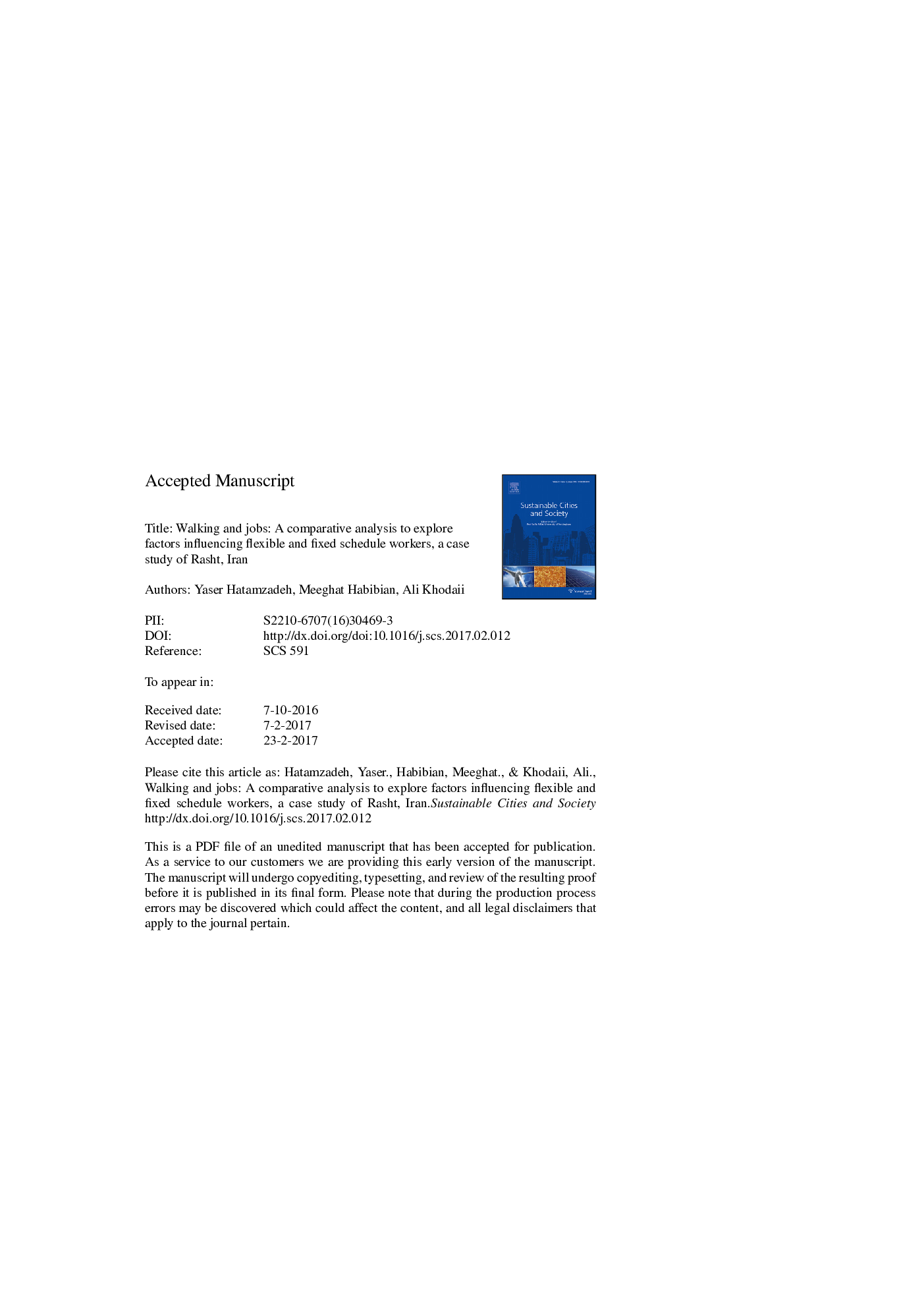| Article ID | Journal | Published Year | Pages | File Type |
|---|---|---|---|---|
| 4928053 | Sustainable Cities and Society | 2017 | 21 Pages |
Abstract
Although walking behavior has been the subject of debate in developed countries, much remains to be learned about this subject in developing countries. Furthermore, it seems likely that the effect of different factors on choosing walking as a commute mode varies across different job groups. Therefore, this research investigated and compared walking behaviors across two job groups with different schedule patterns in the city of Rasht, Iran. The first group is related to those who are flexible schedule (i.e., FLS) workers and the second group refers to people who identify as fixed schedule (FXS) workers. FXS workers attend/leave their workplace during specific period of time which is usually invariant and makes them more time constraint than the second group. Separate behavioral choice models are developed for trips to work using a range of explanatory variables including individual; household; travel; and environmental variables. Results show that females are more likely to walk than males in both groups. Another significant factor is the travel distance which was found with different effects across the studied job groups. Furthermore, it was found that land use features are directly related to walking choice probability of FLS workers.
Related Topics
Physical Sciences and Engineering
Energy
Renewable Energy, Sustainability and the Environment
Authors
Yaser Hatamzadeh, Meeghat Habibian, Ali Khodaii,
